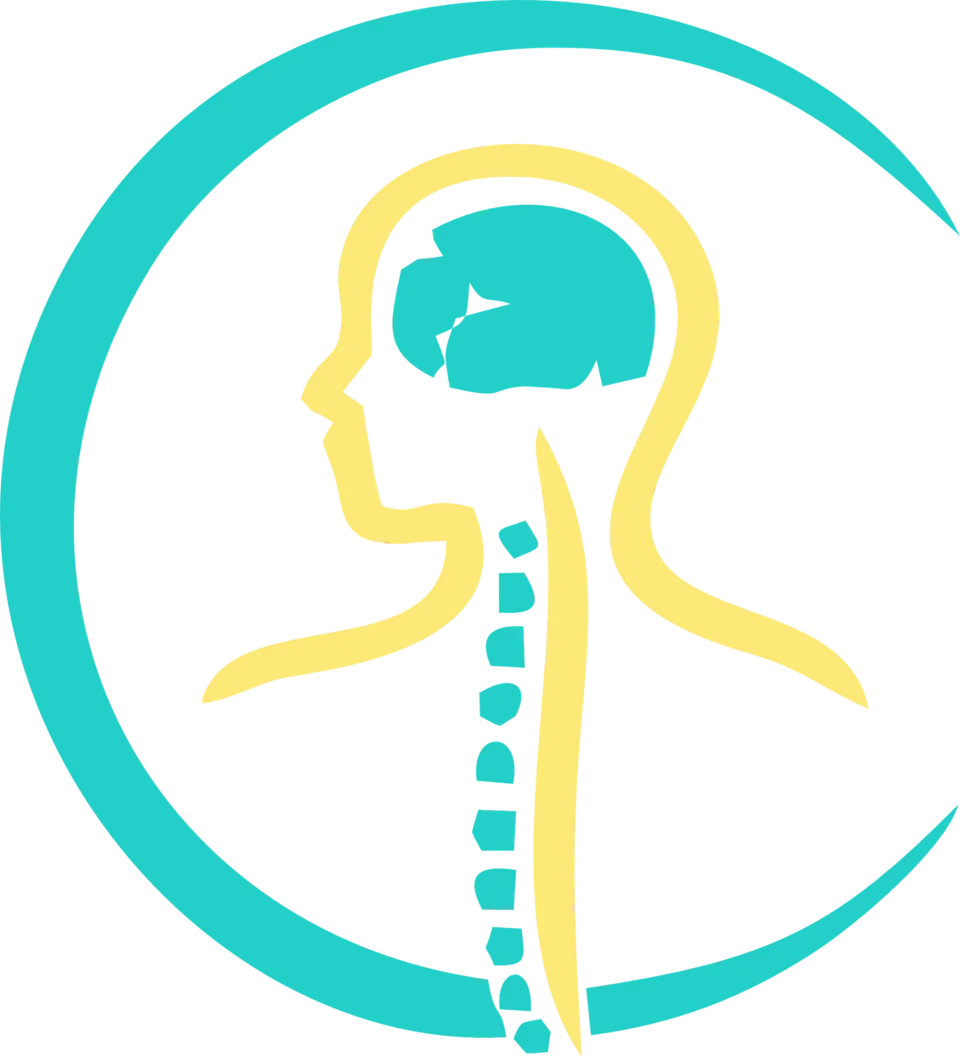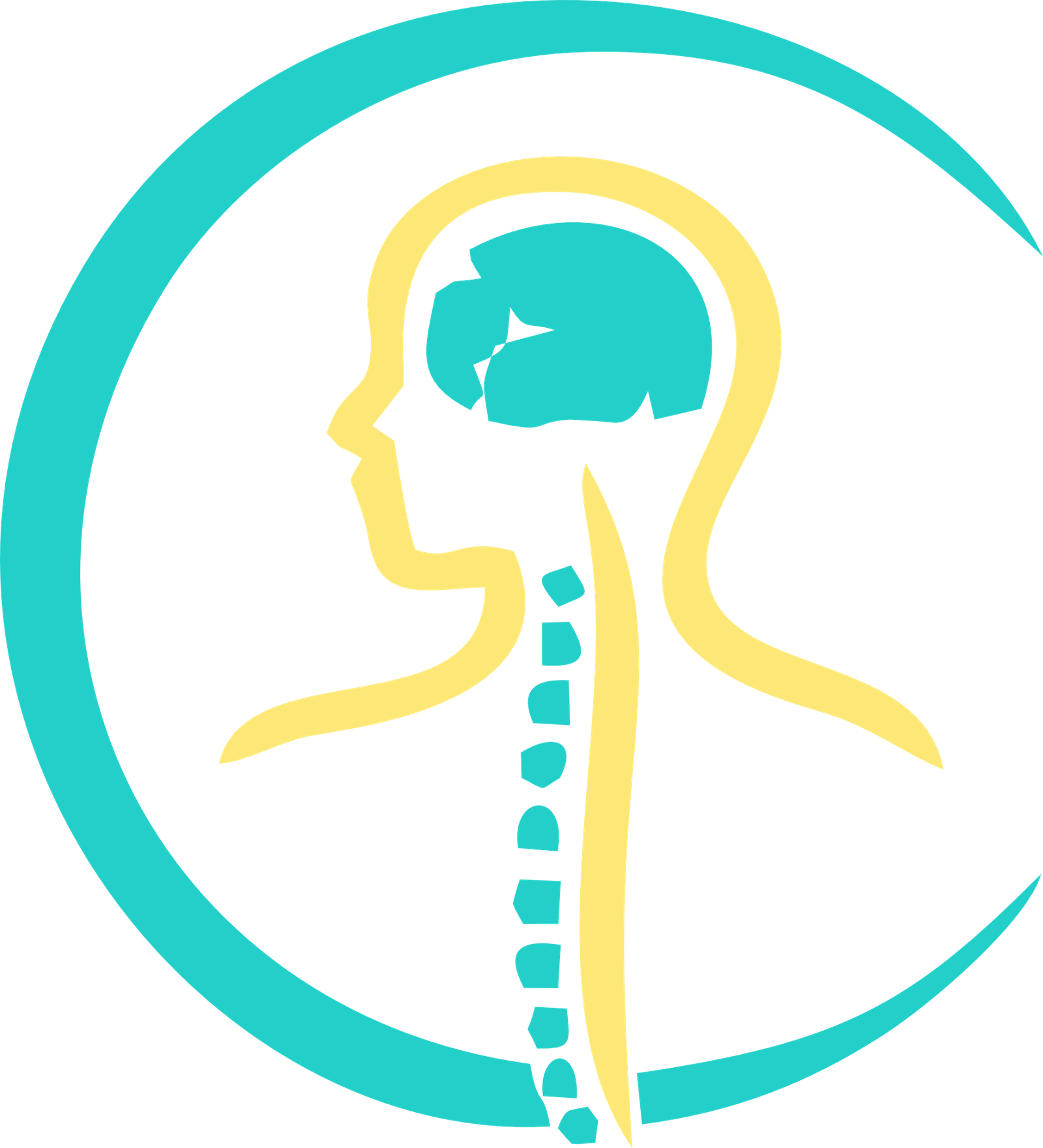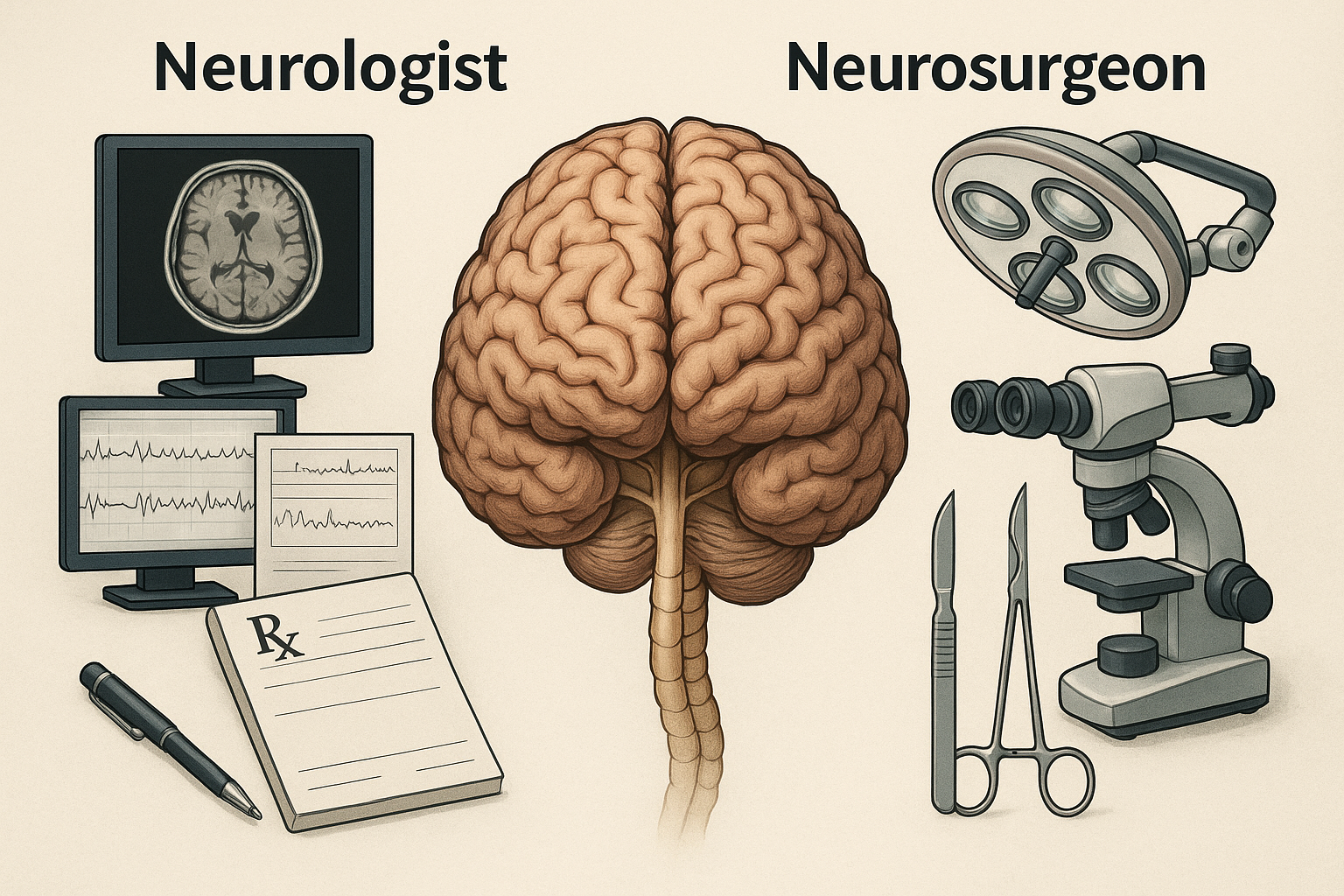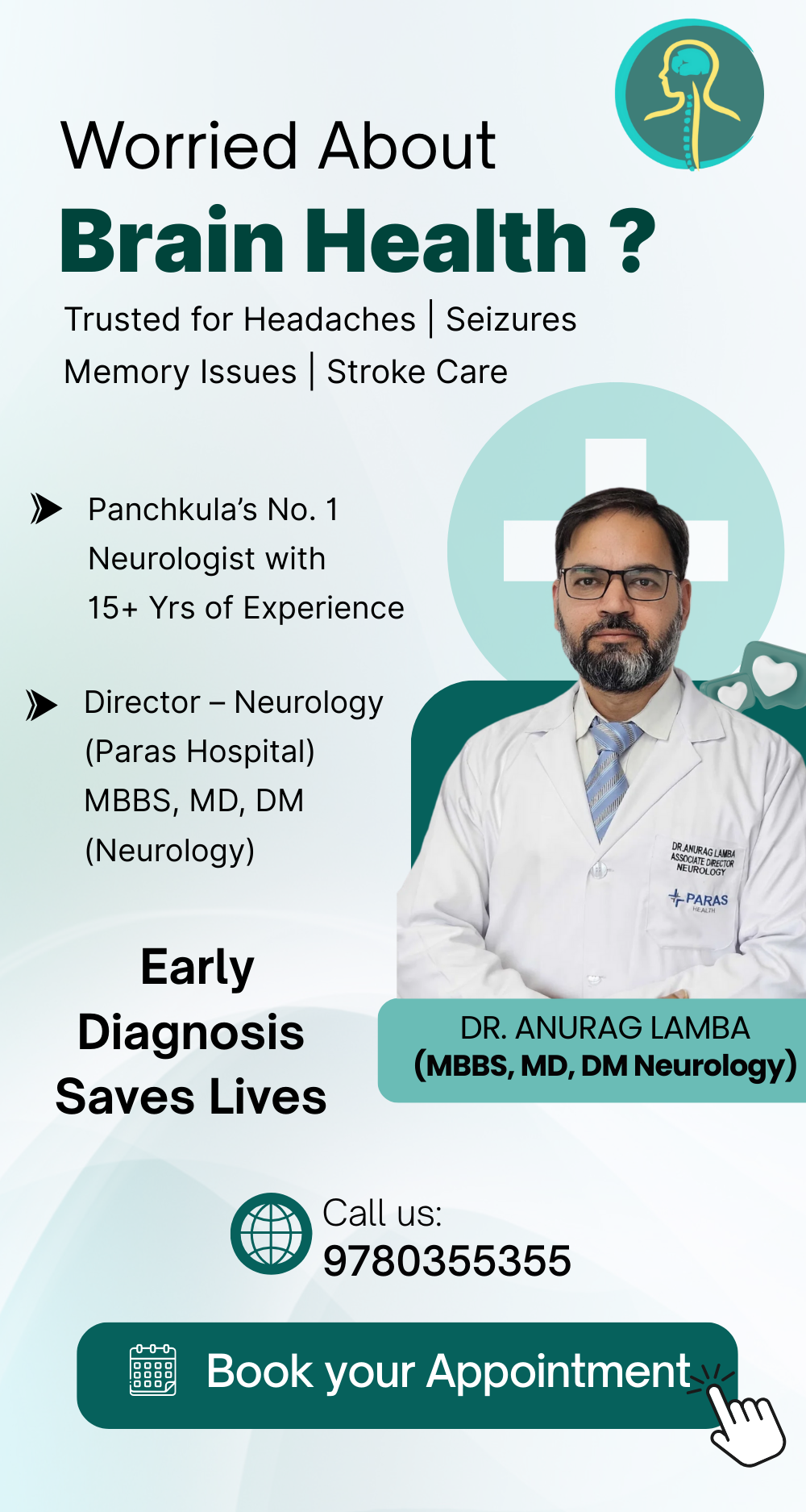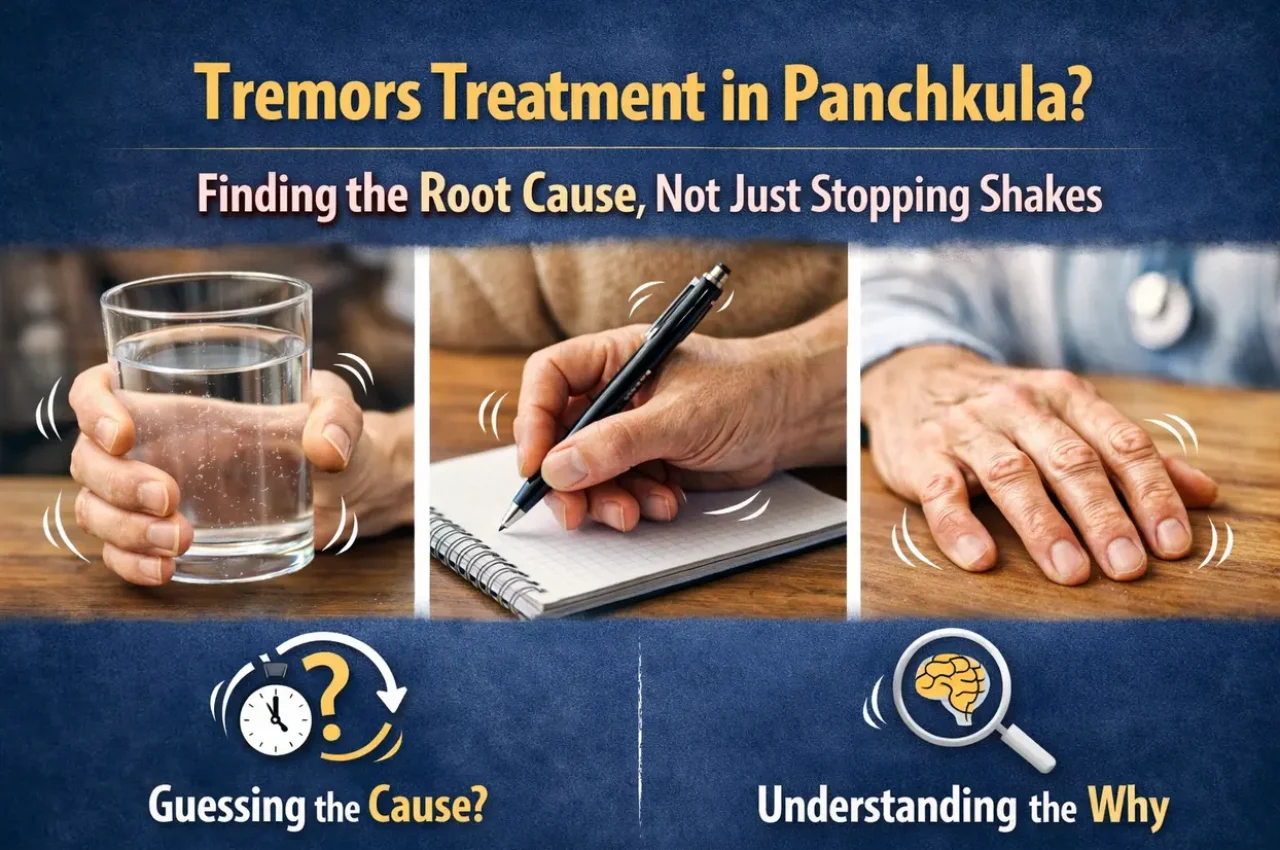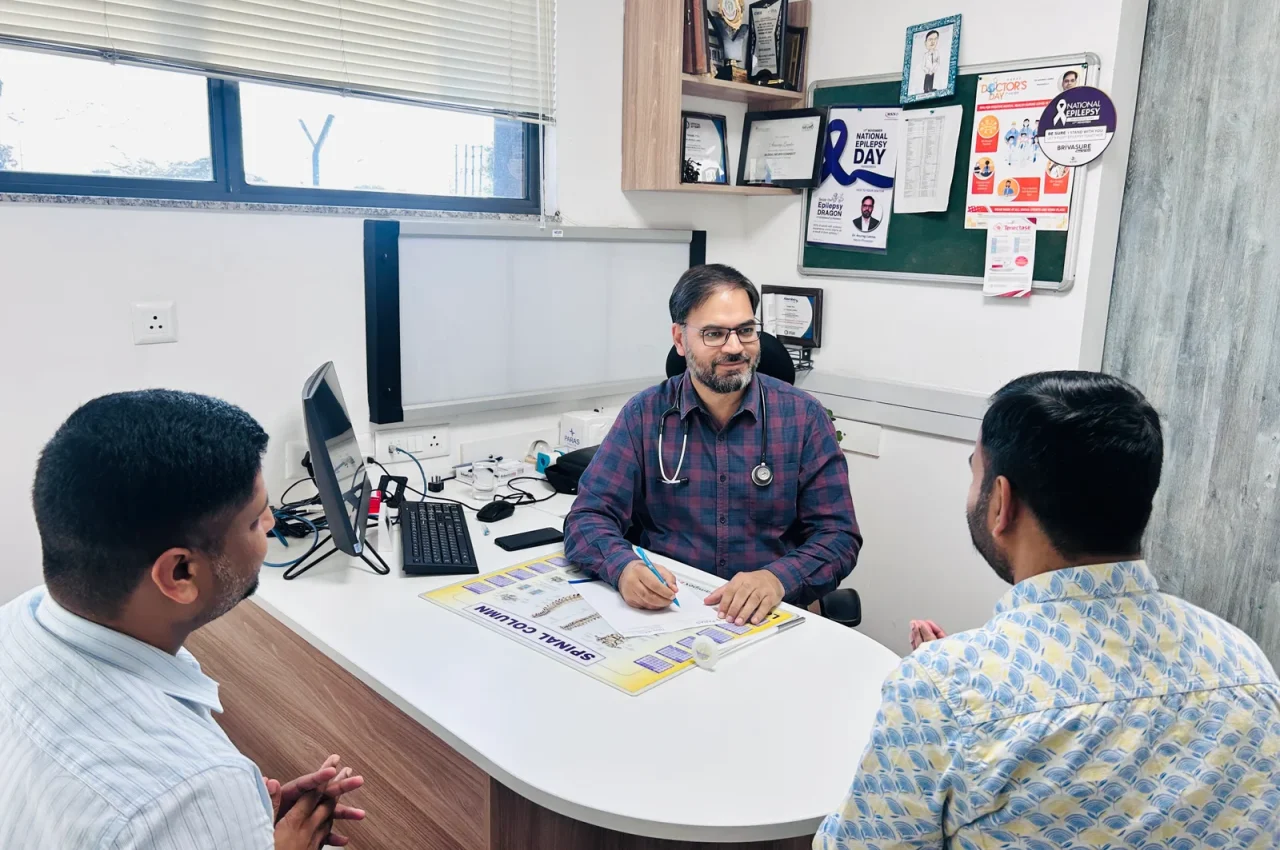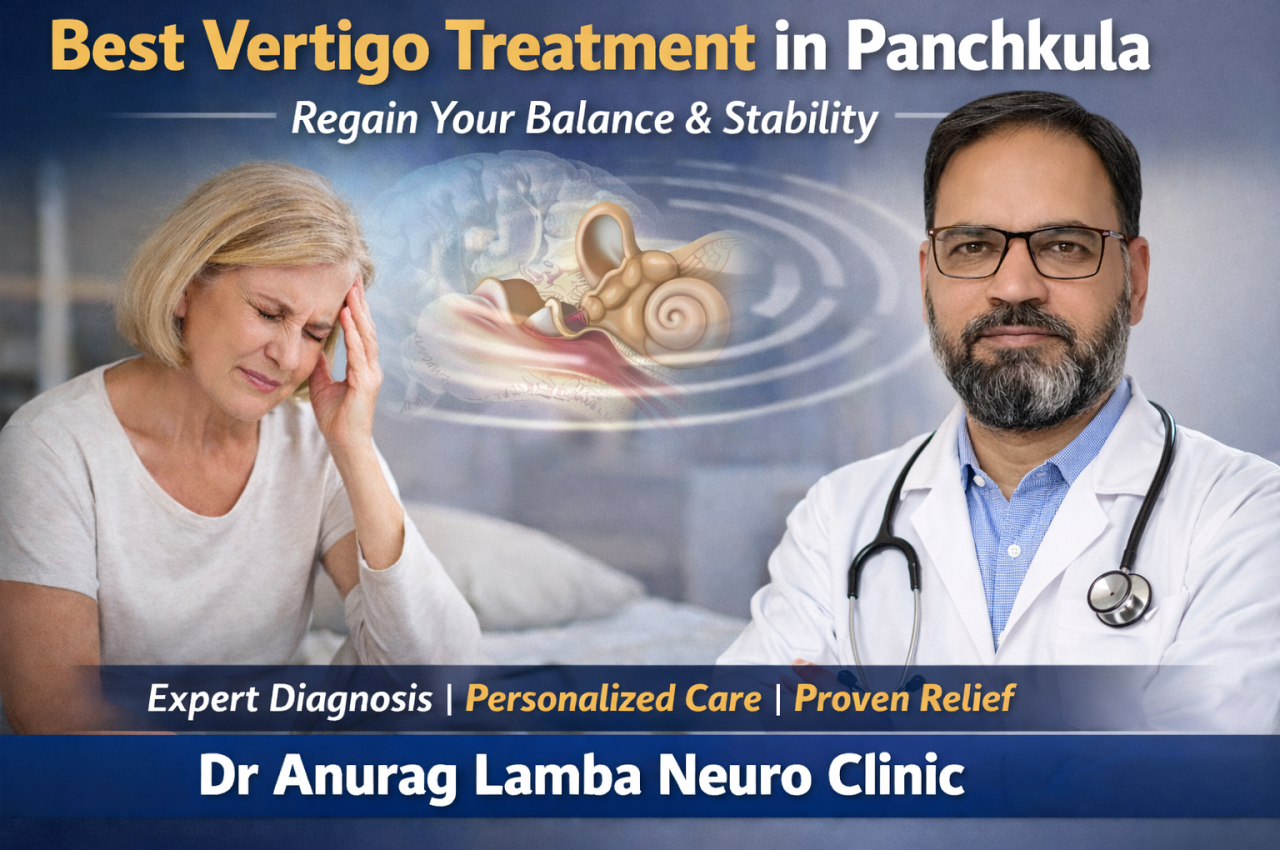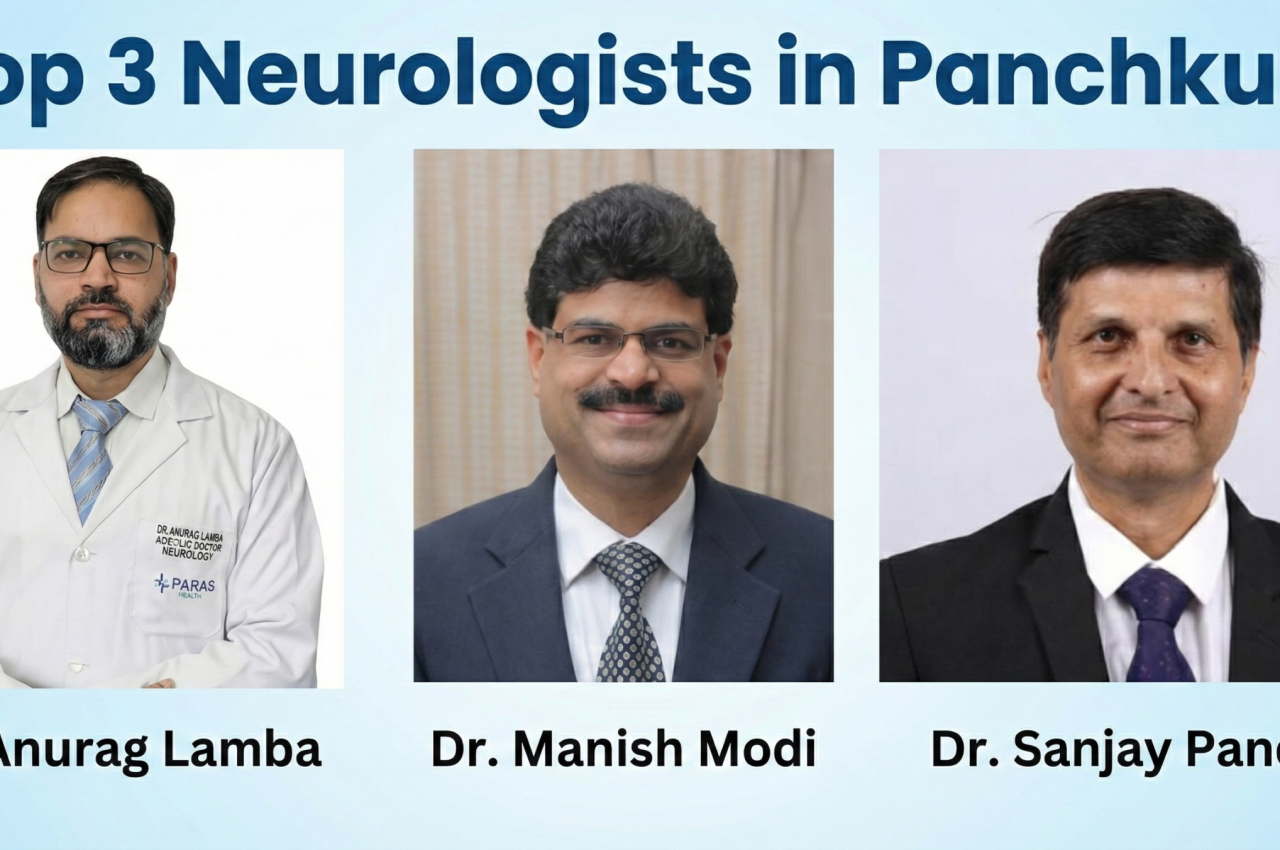When something feels off with your body, especially with symptoms as unsettling as chronic headaches, dizziness, or numbness, figuring out who to see can be as stressful as the symptom itself. It’s a common point of confusion: do you need a neuro doctor or a neurosurgeon? Think of your body’s nervous system as the complex electrical wiring in your home. If a light starts flickering or a circuit keeps tripping, your first call isn’t to a construction crew to tear down the walls. You call a master electrician to diagnose the fault.
This is the core of the neuro doctor vs neurosurgeon in Panchkula debate. One is the diagnostic expert who maps out the problem, and the other is the specialist who performs structural repairs when needed. Understanding this difference is the first step toward getting the right help, easing your anxiety, and starting on the path to feeling better. This guide will provide a clear roadmap, helping you navigate your health journey with confidence.
What Exactly Does a Neurologist Do?
A neurologist is a medical doctor who specializes in diagnosing, treating, and managing conditions of the brain and nervous system. They are the “neurological detectives” of the medical world. Their primary role is to investigate your symptoms, conduct a thorough examination, and use advanced diagnostic tools to pinpoint the root cause of the problem. They manage conditions with non-surgical treatments like medication, lifestyle adjustments, and various therapies.
A neurologist is your long-term partner in managing both sudden, acute events like a stroke and chronic diseases like Parkinson’s or multiple sclerosis. Their expertise covers an incredibly wide range of conditions.
Some of the key issues a neurologist handles include:
- Headaches and Migraines: Chronic migraines, tension headaches, and cluster headaches that disrupt your daily life.
- Seizure Disorders: Diagnosing and managing epilepsy in all its forms to control seizures.
- Stroke: Providing immediate treatment for strokes and overseeing long-term rehabilitation to regain function.
- Movement Disorders: Treating conditions like Parkinson’s disease, essential tremor, and dystonia that affect your ability to control your movements.
- Neurodegenerative Diseases: Managing progressive conditions like Alzheimer’s disease, dementia, and other forms of memory loss.
- Autoimmune Conditions: Treating diseases where the body’s immune system attacks the nervous system, such as Multiple Sclerosis (MS), Myasthenia Gravis, and Guillain-Barré syndrome.
- Nerve and Muscle Problems: Addressing issues like peripheral neuropathy (which causes numbness or tingling), muscle weakness, and carpal tunnel syndrome.
What Does a Neurosurgeon Actually Handle?
A neurosurgeon is a medical specialist trained to perform surgery on the brain, spine, and peripheral nerves. While the term “brain surgeon” might sound intimidating, it’s important to know that their work is not limited to the brain. They are also experts in complex spinal surgeries and procedures to relieve nerve compression.
A common misconception is that a visit to a neurosurgeon automatically means surgery. This isn’t true. Neurosurgeons often explore all non-surgical treatment options first, viewing an operation as a necessary step only when conservative methods have failed or in an emergency.
A neurosurgeon is typically called upon for conditions that involve a structural problem needing physical repair.
- Tumors: Surgical removal of brain tumors and spinal tumors.
- Vascular Problems: Clipping or coiling brain aneurysms and repairing bleeding in the brain (hemorrhages).
- Severe Trauma: Treating traumatic head injuries, skull fractures, and spinal cord injuries, often in an emergency setting.
- Spinal Conditions: Performing surgery for herniated discs, spinal stenosis (narrowing of the spinal canal), or degenerative disc disease when they cause severe pain or nerve damage.
- Congenital Abnormalities: Correcting issues present from birth, such as hydrocephalus (excess fluid on the brain) or spina bifida.
- Nerve Compression: Relieving pressure on nerves in conditions like severe trigeminal neuralgia or carpal tunnel syndrome that haven’t responded to other treatments.
The Real Differences – Neuro Doctor vs Neurosurgeon
The best way to understand the distinction is with an analogy. A neurologist is like an architect who designs the blueprint for a building. They understand the entire system, identify any flaws in the design, and create a comprehensive plan for repair. A neurosurgeon is like the specialized builder who is called in to execute specific structural work, like reinforcing a foundation or repairing a load-bearing wall, based on that blueprint.
A neurologist is the ‘thinker’ who diagnoses the problem, while a neurosurgeon is the ‘fixer’ who intervenes with their hands. Both are essential, but you almost always need the thinker before you call in the fixer.
These two specialists are not competitors; they are collaborators. They frequently work as a team, discussing complex patient cases to decide the best path forward, ensuring that surgery is only recommended when it is truly the best option.
| Aspect | Neurologist (The ‘Brain Detective’) | Neurosurgeon (The ‘Surgical Specialist’) |
| Primary Role | To diagnose and manage conditions with medication, therapies, and lifestyle changes. | To physically repair structural problems in the brain, spine, and nerves through surgery. |
| Treatment Method | Non-surgical. | Primarily surgical, but often after conservative treatments fail. |
| Focus | Understanding the function and pathways of the nervous system. | Correcting the structure of the nervous system. |
| When to See First | For most symptoms: headaches, dizziness, seizures, numbness, memory issues. | For emergencies like severe head trauma or when directly referred for surgery. |
When to Start With a Neurologist
For the vast majority of neurological symptoms, the correct first step is to see a neurologist in Panchkula. These specialists are trained to get to the bottom of symptoms that can often be vague or confusing. Many people dismiss these signs as just “stress” or a normal part of aging, but they can be your body’s way of signaling an underlying issue.
If you are experiencing any of the following, it is a good idea to schedule a consultation with a neurologist:
- Chronic or severe headaches: If you suffer from migraines that are getting worse, or if your headaches are severe and unexplained.
- Dizziness or balance issues: A persistent feeling of vertigo (spinning) or general unsteadiness that affects your ability to walk confidently.
- Numbness or tingling: A constant “pins and needles” sensation or loss of feeling, particularly if it’s confined to one side of your body.
- Movement problems: Things like a tremor in your hands, stiffness in your limbs, shuffling your feet when you walk, or sudden, involuntary jerks.
- Memory problems or confusion: Noticeable changes in your memory, shifts in your personality, or difficulty finding the right words.
- Seizures: This includes major events like convulsions as well as more subtle “absence” or staring spells.
- Chronic pain: Persistent pain that isn’t explained by an obvious injury and hasn’t been resolved by your primary doctor.
When to Go Directly to a Neurosurgeon
There are a few specific situations where seeing a neurosurgeon first is appropriate. These are typically exceptions to the “neurologist first” rule and almost always involve an emergency or a pre-existing diagnosis. If you are looking for a neurosurgeon near me, it’s likely for one of these reasons:
- After a major trauma: In the event of a serious head injury from a car accident or a significant fall, the emergency room team will likely bring in a neurosurgeon to assess for brain or spinal cord damage.
- Following an emergency room diagnosis: If you visit the ER for a sudden, severe symptom (like the “worst headache of your life”) and a CT or MRI scan reveals a condition that requires immediate surgery, such as a brain hemorrhage or a large tumor, you will be seen by a neurosurgeon right away.
- With a direct referral for surgery: If your family doctor or a neurologist has already conducted a full diagnostic workup and determined that you have a condition requiring surgery, they will refer you directly to a neurosurgeon for a surgical consultation.
Why Choose Dr. Anurag Lamba’s Neuro Clinic in Panchkula?
Now that you understand the different roles, the logical next step for anyone in the region is clear. For a definitive diagnosis and expert management plan, you need a trusted neurologist. As a leading brain specialist in Panchkula, Dr Anurag Lamba is the ideal first point of contact.
Dr. Lamba is a highly respected neurologist, not a neurosurgeon, making him the perfect specialist to start your journey with. His credentials speak for themselves: with a DM in Neurology from the prestigious AIIMS, New Delhi, and over 20 years of experience, he brings a wealth of knowledge to every patient consultation. As the Director of Neurology at Paras Hospitals, Panchkula, he is at the forefront of neurological care in the region.
He understands that patient needs are diverse, which is why he offers flexible options. You can consult with him at Paras Hospitals during the day or at his private evening practice, the Neuro Clinic in Sector 7, Panchkula. Whether you are dealing with chronic migraines, concerns about memory loss, or need expert stroke management, his patient-focused approach ensures you receive a personalized and comprehensive care plan. For an appointment at his Neuro Clinic, you can easily find the right support.
Listen to Your Body And Don’t Wait
Navigating health concerns can be daunting, but clarity is power. Understanding the difference between a neurologist and a neurosurgeon empowers you to make the right first move. For most people, that move is a consultation with a neurologist who can provide answers and a clear plan.
Neurological symptoms are your body’s way of sending an urgent message. The most important step you can take is to find an expert who can translate it. Don’t delay that conversation.
Your health is your most valuable asset. Listening to your body and seeking expert advice is a sign of strength. Take that crucial first step toward peace of mind and better health today.
